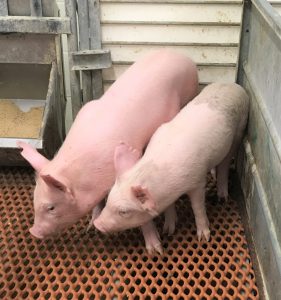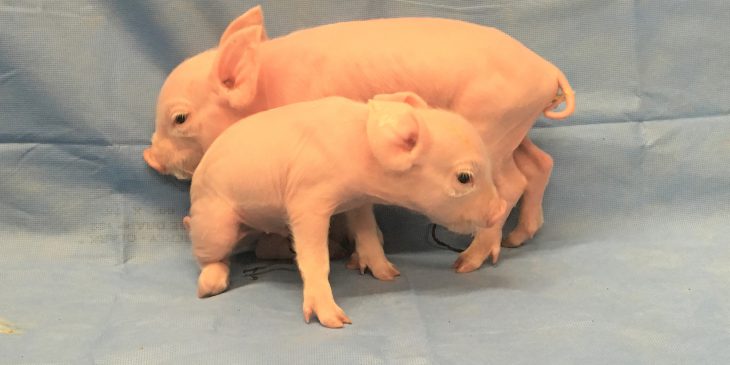Phenylketonuria (PKU) is a congenital disease in which patients lack an enzyme that breaks down the amino acid Phenylalanine (Phe). Untreated, PKU leads to intellectual disability, seizures and movement disorders.
Today, babies are typically diagnosed with PKU 3-5 days after birth, from a heel prick blood test. And the primary treatment sounds simple – avoid foods that contain Phe. But that’s easier said than done.
“One of the problems with PKU, even though newborn screening and control of diet of young kids is good, the diet is bland and not too interesting. When kids become teens we know they want to be able to go out and have a meal with friends and they struggle to keep symptoms in check,” said Dr. Rob Nicholls, professor of pediatrics and director of the Birth Defects Laboratories at the University of Pittsburgh School of Medicine.
Since Phe is an amino acid, it’s present in any food that contains a lot of protein – steak, fish, tofu, beans, etc. – so people with PKU end up purchasing Phe-free food to get the protein they need to grow and stay healthy.
But, besides being bland, this special food can also be quite expensive. Families often need help paying for it, since it’s not covered by health insurance.
There are a few gene therapies in the pipeline, as well as a drug that works for some, as well as enzyme substitution therapy that involves frequent painful injections, Nicholls said, but most people still end up with a prescription for a special diet.
A major roadblock for developing better treatments is the lack of a good animal model for PKU research.
Genetically engineered laboratory rodents – the workhorse of preclinical research – don’t display PKU symptoms, and researchers have yet to establish another animal that does the job.

A PKU pig and its unaffected littermate at 2 months of age.
So, Nicholls and colleagues developed a pig model of PKU, which they describe in a paper published today in JCI Insight.
According to study coauthor Dr. Jerry Vockley, chief of medical genetics at UPMC Children’s Hospital of Pittsburgh, who sees many PKU patients and their families each year in the clinic, this new pig model of PKU will allow for the advancement of better treatment options beyond a difficult-to-sustain diet.
“Development of this model of PKU for the first time allows us the opportunity to develop improved therapies and test them in a meaningful way, opening the door to a better life for patients,” Vockley said.
To create a pig model of PKU, the researchers crossed a Yucatan mini pig – which grows to about the size of a small human – with a domestic pig and used CRISPR gene editing to cut out part of the gene for phenylalanine hydroxylase (PAH), the enzyme that breaks down Phe.
The animals were born at the University of Missouri, in collaboration with Dr. Randall Prather, Director of the National Swine Resource and Research Center.
During infancy, the PKU model pig, who was born with two copies of the edited PAH gene, was much smaller than a littermate with only one copy of the edited gene. There were also clear brain differences.
Blood Phe levels were much higher in the PKU pig than either PKU patients off their diet or mice engineered to lack the PAH gene. A completely Phe-free diet brought the animal’s levels down to normal, only to spike again with a diet of 50% Phe-free chow.
To verify that the gene editing protocol didn’t accidentally clip off any adjacent genes, lead author Dr. Erik Koppes, a postdoctoral fellow in Nicholls’s lab, sequenced the genome of the PKU pig and verified that the edited segment was within the bounds of the gene known to cause PKU.
Koppes also looked for off-target mutations across the genome – a common concern with CRISPR – but didn’t find any.
“It took quite a bit of genetic detective work,” Nicholls said.
Next, Nicholls plans to begin breeding PKU pigs for future studies. He hopes to one day move the animals to a nearby farm, where the operation can scale up at a lower cost, with the ultimate goal of making the pig the preferred model of preclinical PKU research.
This research was funded by the National PKU Alliance (NPKUA) and an IGNITE grant from the National Institute of Neurological Disorders and Stroke.








